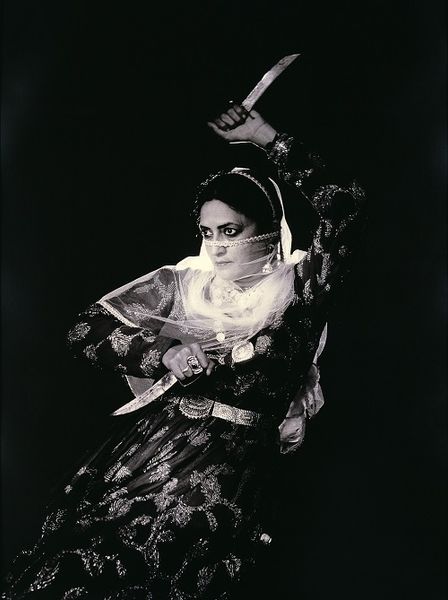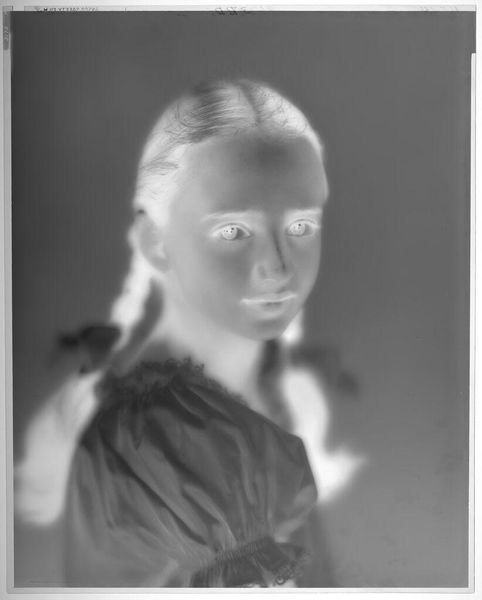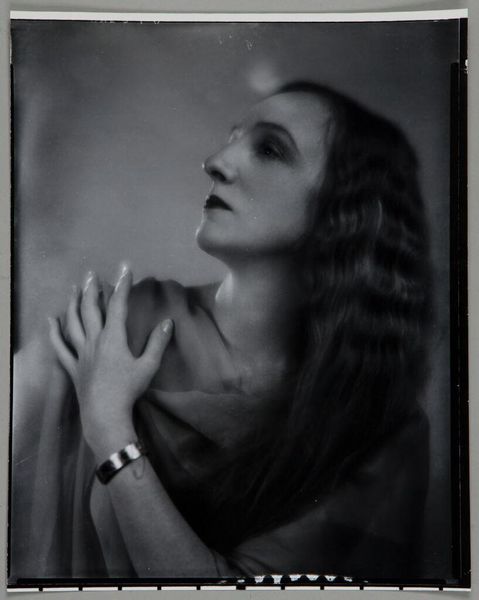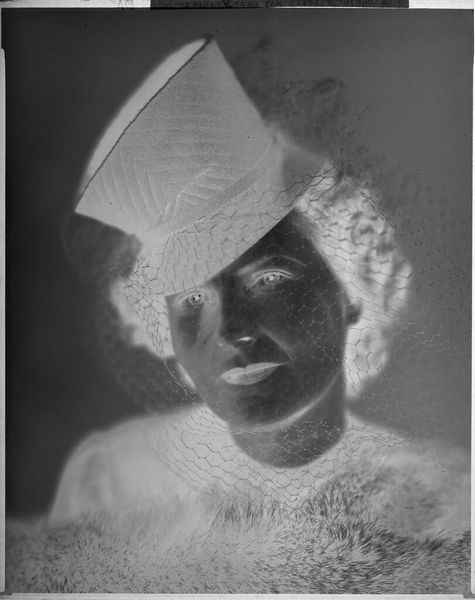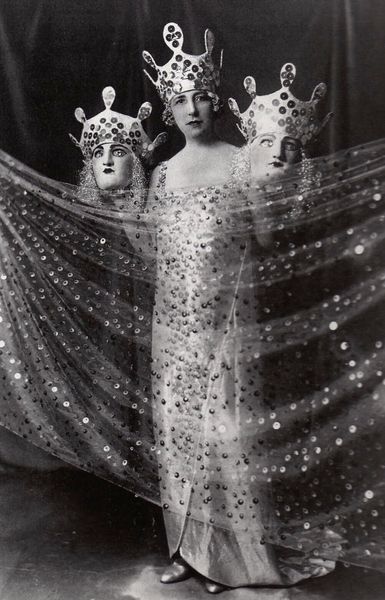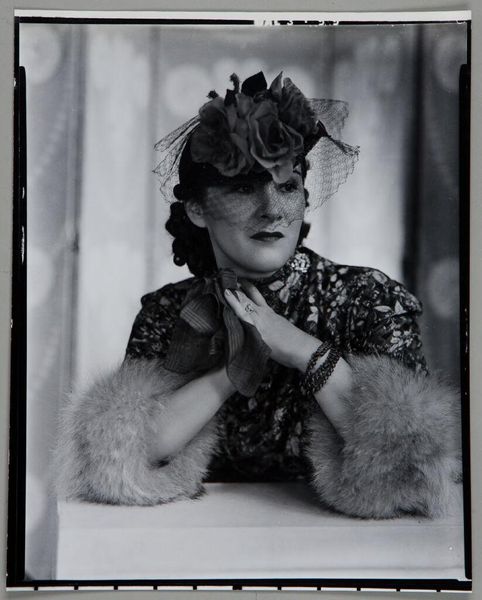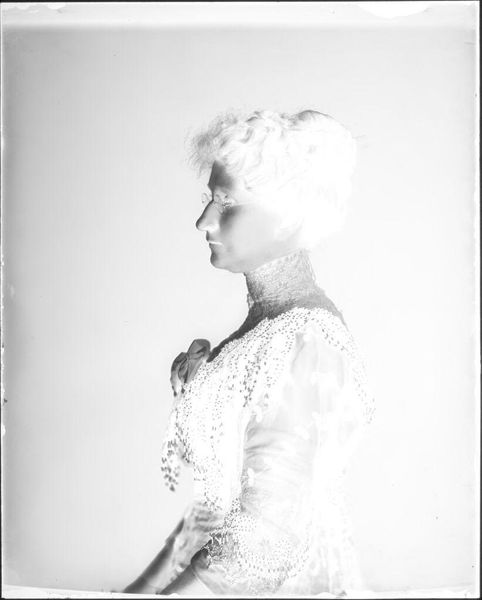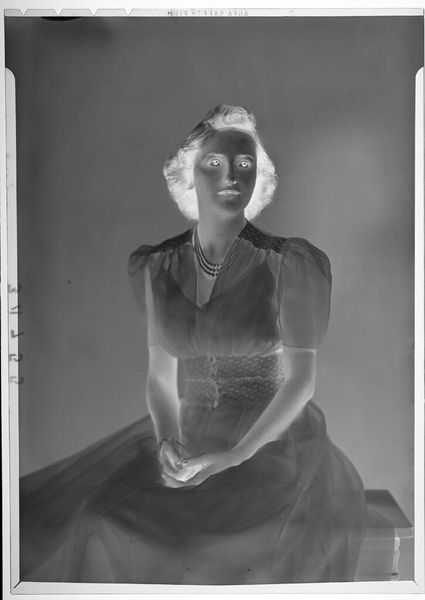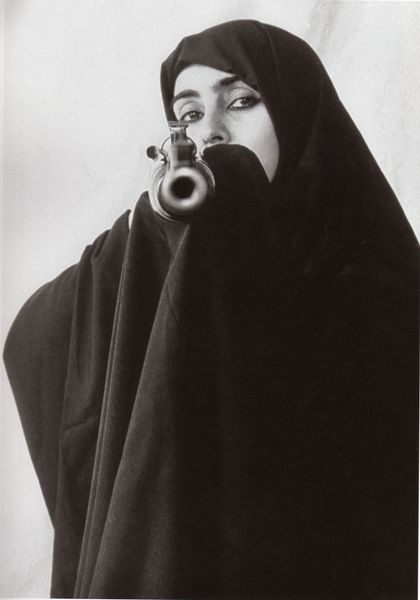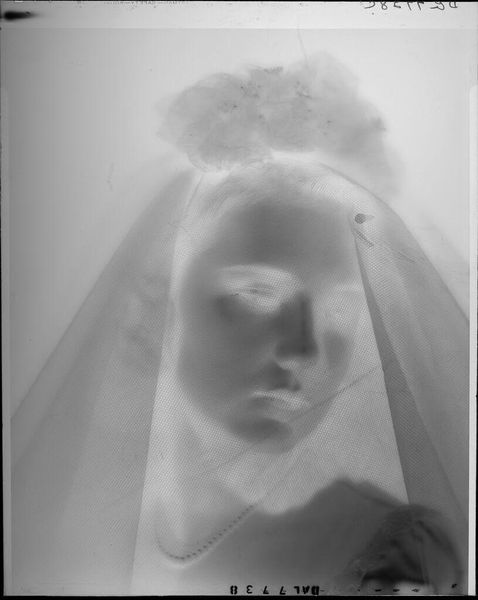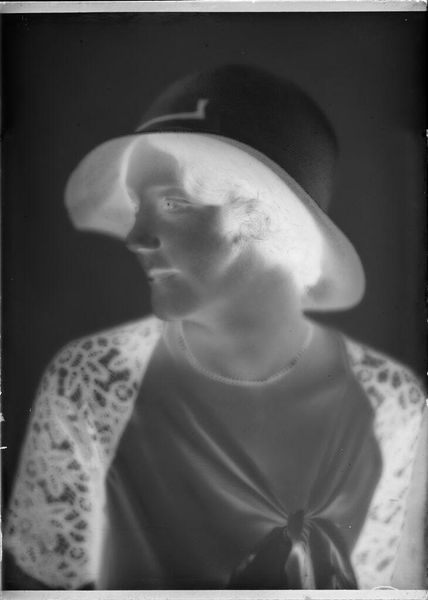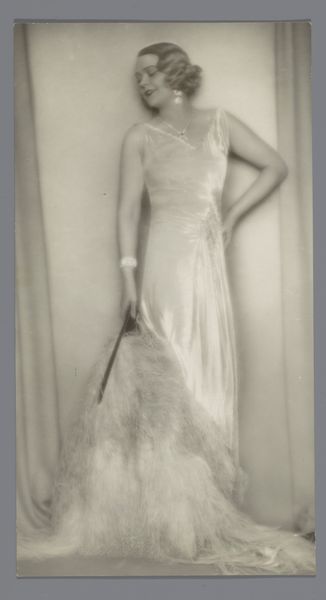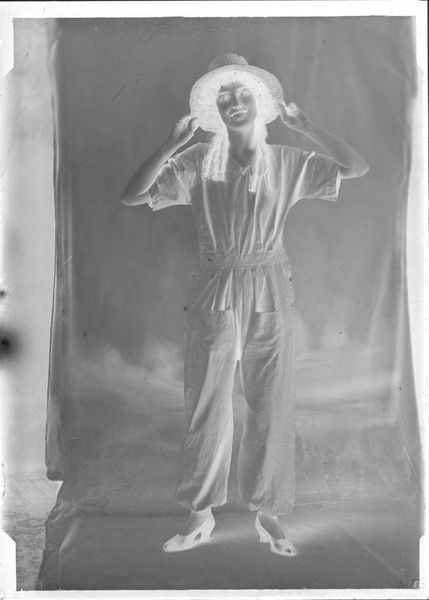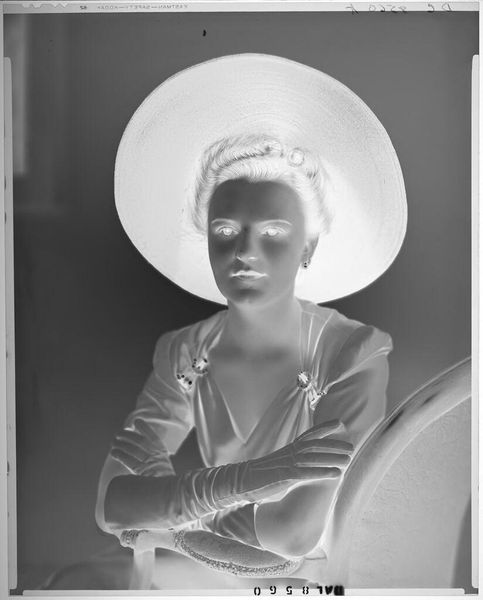
photography
#
portrait
#
art-deco
#
face
#
portrait image
#
black and white format
#
photography
#
black and white
Copyright: Public domain
Editor: So this is an advertisement for Elizabeth Arden cosmetics, a photograph by Adolph de Meyer from 1927. The woman's gaze is so direct, almost confrontational, despite the soft, hazy focus. What strikes you about this image? Curator: This portrait, while ostensibly an advertisement, operates on a deeper level, doesn't it? Consider the date, 1927, within the burgeoning flapper era and the increasing enfranchisement of women. How might this image engage with, or even challenge, prevailing beauty standards and expectations of women in the public sphere? What is being sold here besides a cream? Editor: It’s definitely not just selling a cream; there's a whole lifestyle implied, a sense of modern elegance. The direct gaze almost dares you to partake in that world. Is there an element of defiance in presenting beauty so boldly? Curator: Precisely! De Meyer's strategic use of light and shadow accentuates the subject’s features, underscoring her agency. Consider how cosmetics then and now enable women to control their own self-representation, a subtle yet powerful act of self-determination. Is this advertisement about selling a product, or selling the idea of female empowerment, albeit within capitalist frameworks? Editor: It's a very empowering statement for the time. I hadn't considered the wider social impact of something that seems as simple as a beauty product. Curator: It highlights the intricate interplay between beauty, identity, and socio-political forces. Advertisements can be read as cultural artifacts that both reflect and shape the evolving roles and perceptions of women in society. It is important to view even commercial images like this, through a critical intersectional lens. Editor: That makes me look at this photo completely differently. It’s more than just an ad; it's a symbol of a changing era. Curator: And a reminder that even seemingly superficial images can hold complex layers of meaning about gender, identity and the dynamics of power.
Comments
No comments
Be the first to comment and join the conversation on the ultimate creative platform.
